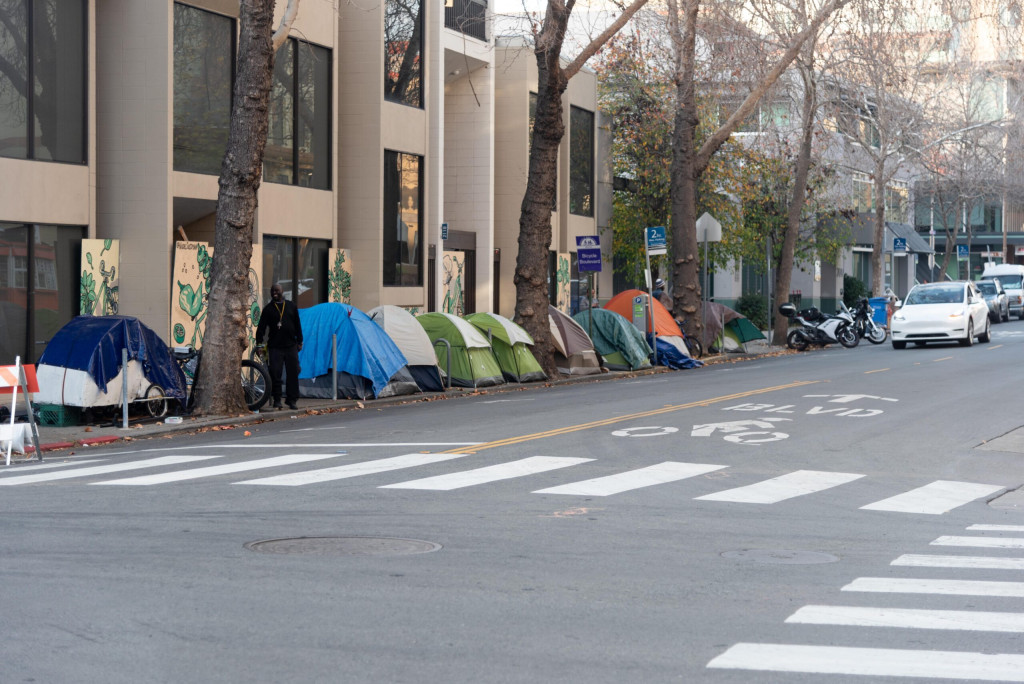As the Berkeley community celebrates the holidays after a tumultuous and tragic year, generosity and gratitude are needed more than ever. Berkeley has a robust culture of charity and donation, amplified by the increasing affluence of the community over the years. As Berkeley residents watch their city become increasingly gentrified and, in many cases, play a part in that gentrification themselves, it may be hard to combat the feeling of guilt that comes from being a civically minded member of a community known for social justice whilst playing a role in the community’s demise. For many, the answer comes in the form of generous donations to various charities, both local and national. This year, Berkeley was included on GoFundMe’s list of most generous cities in America. While this was an inspiring feat, it’s important to recognize that charity donations cannot be an excuse to ignore the major issues of gentrification and homelessness in our community. Too often, Berkeley residents use short-term acts of charity as a way to ease their guilt for their role in the major wealth gap in our community, whilst simultaneously failing to address it.
From a young age, Berkeley children become aware of the problems of homelessness in our city. Walking through Downtown or standing in line for The Cheeseboard, most will watch their parents drop a few dollars in a cup, maybe in exchange for a copy of Street Spirit, and then continue walking. Those children learn the value of generosity, but often also receive the message that that’s the way to feel better about the stark and unfair differences in situations.

Obviously, children won’t understand the complexities of gentrification, lack of sufficient homeless shelters or support programs, and the culture of white guilt surrounding those problems in Berkeley. But adults can. When one understands those issues, it becomes harder and harder to justify ignoring them by making increasingly large donations to charities or giving more and more money to the man on the corner.
The reality of acts of charity is that although they can mean a lot to people in the short term, they fail to address the real issues behind the need for charity in the first place. Spare change can mean a meal for someone living on the street, but the way our society is structured, it still remains a significant challenge for people with nothing to gain access to the resources needed to acquire a house or a job. In addition to providing people with the money they need in the short term, donations should be made to long term support programs for houseless or poor people. This might mean supporting political candidates advocating for affordable housing, or donating money to Berkeley Free Clinic and local Berkeley shelters.
So what else can be done? First of all, mindful and intentional donations of time and money. Affluent residents in Berkeley, especially those who moved here in the past few decades, should be paying reparations as opposed to charity. Donating money should be seen as your responsibility, not an extra expense to feel good about oneself. American society, and capitalism in general, functions in a way that allows redistribution of wealth — or charity — to be framed as a choice as opposed to a responsibility. There are many steps one can take to combat this. For example, keep your donations local and support one of the many Black-owned businesses at risk of shutting down in the rapidly gentrifying neighborhoods of Berkeley and Oakland. If you live in a home with extra living units, consider renting them out for affordable rates and prioritize People Of Color (POC) or low income residents. Look into how to support homeless shelters in Berkeley, and the creation of more. Donate money directly to GoFundMes for Black queer people, or sign up for a shift at the food bank. And most importantly, don’t do it because you feel bad. If you feel guilty, lean into the guilt and use it to give back to the community that has given so much.





